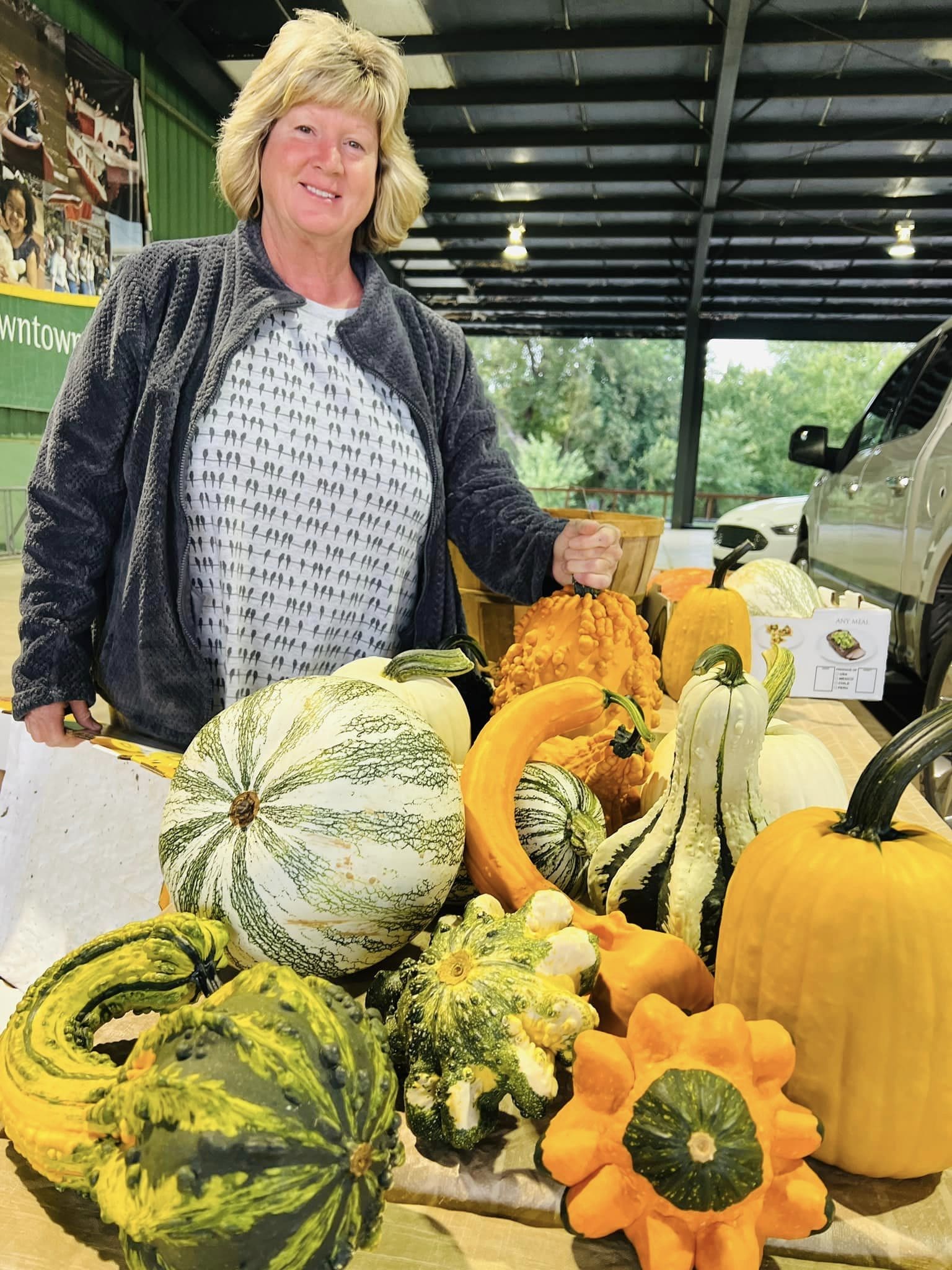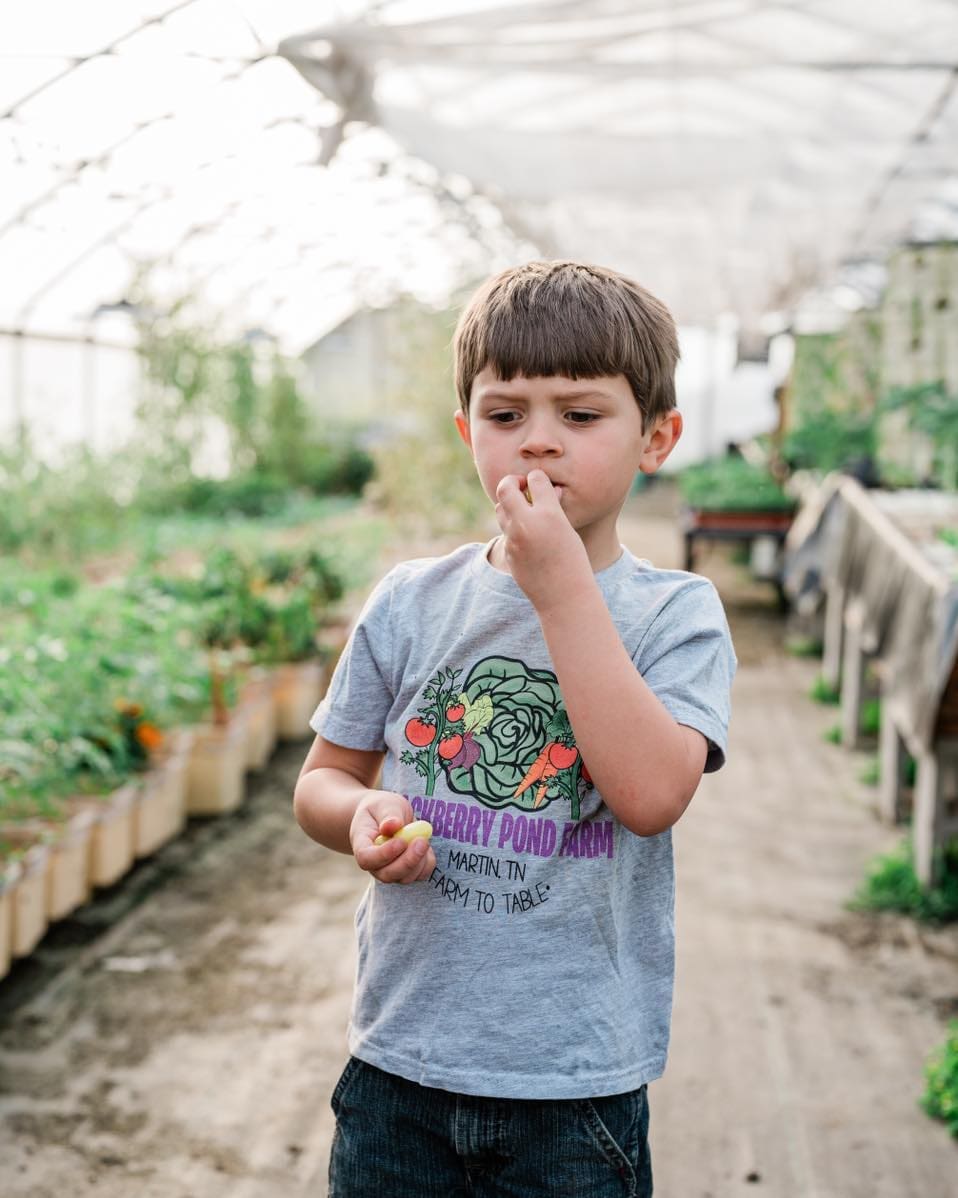Blackberry Pond Farm in Martin, Tennessee, a small town in the northwest corner of the state, exemplifies how local agriculture can foster stronger connections between communities and the food they consume.
Sue and James Miller, owners of the hydroponic farm, have been supplying fresh, organic vegetables to local families, restaurants, and schools, thanks to their involvement in initiatives like the Farm to School program. Their participation in the farm-to-school movement is a central aspect of their work, helping to bring fresh, locally sourced produce to schools and encouraging students to embrace healthier eating habits.
The story of Blackberry Pond Farm began in 2014 when the Millers moved from Memphis to Martin and found limited options for fresh produce. Frustrated with the selection at local grocery stores, Sue started growing lettuce and salad greens on her kitchen windowsill. Soon, her husband James built a greenhouse, and their project quickly turned into a community venture.

“People started telling us, ‘This is too good to give away. You should sell it at the Farmer’s Market,’” Sue said. Over time, the farm expanded its offerings and established a Community Supported Agriculture (CSA) program with nearly 100 members, a growing email list of 600 subscribers, and wholesale contracts with local restaurants.
One of the farm’s most rewarding partnerships has been with the Farm-to-School program, which connects local farms with schools to provide students with fresh, healthy food. Trenton and Milan School Districts received a grant that allowed them to buy produce from Blackberry Pond Farm. This grant facilitated Sue’s introduction to the school nutrition directors, and the partnership has blossomed since.
Lisa Seiber-Garland, the Nutrition Director for Trenton School District, shares the impact of Blackberry Pond Farm’s produce on her students.
“Let me tell you a story,” Seiber-Garland said. “One of my students liked the lettuce from Blackberry Pond Farms so much that she went home and told her mom she wanted it. Her mom ended up going there to get the lettuce, and that just tickled me.”
“Sue has been a wonderful asset to me, as have the other farmers we work with. It all started with the Farm-to-School grant, and we’ve just expanded from there. It’s been an amazing journey.”
— Lisa Seiber-Garland, Child Nutrition Director of Trenton Special School District
Blackberry Pond Farm’s role in the Farm-to-School program goes beyond just selling produce. Sue and James actively engage with the students through educational activities like taste tests. She fondly recalls a memorable day when students sampled buttercrunch lettuce, bok choy, and arugula. To her surprise, bok choy was the overwhelming favorite
“It astonished me that second graders would prefer raw bok choy,” Sue said. These interactions have made a lasting impact, with parents at the Farmer’s Market reporting that their children now ask for the same fresh greens they get at school.

The farm’s influence on the local schools has extended beyond the cafeteria. With Sue’s guidance, some schools have started their own hydroponic gardens, helping students learn how to grow their own produce. “It’s not just about buying from us; it’s about learning how to grow it yourself so you can feed yourself,” Sue said. This educational component is critical to the farm’s mission, ensuring that students not only enjoy fresh, healthy food but also develop a deeper understanding of where their food comes from.
In addition to its work with schools, Blackberry Pond Farm has become a food hub for the local community. Their CSA boxes feature products from other local farmers, including grass-fed beef, lamb, pasture-raised chicken, and more. Sue is proud to collaborate with other farmers, ensuring that their customers have access to the highest quality food.
“We’ve included other farmers and ranchers from the local area because we know them, how they treat their animals, and how they process their products,” Sue said. “It’s a better product than what you can buy at Walmart or Kroger.”
However, the sustainability of selling to schools remains a challenge. While the grant has made it possible for schools to afford Blackberry Pond Farm’s organic produce, Sue is realistic about the future.
“The schools wouldn’t buy from us without the grant because we’re certified organic, and our prices are higher than what they can get from Cisco,” she notes. Despite this, the experience has been overwhelmingly positive, with lasting benefits for the students, the schools, and the community.
As Sue looks to the future, she hopes the farm-to-school movement will continue to grow, not only in Tennessee but across the country. She envisions a comprehensive program where students learn to grow, source, and cook fresh, locally sourced food.
“In general, I’d like to see it have a multi-pronged impact, like what Lisa has done at Trenton, with an education component on growing things, a culinary component on cooking with those ingredients, and sourcing those items locally."
— Sue Miller, Co-Owner of Blackberry Pond Farm
Sue and James Miller are dedicated to growing their farm’s influence and creating a lasting impact on their community as they continue collaborating with schools and organizations like Communities Unlimited (CU), Eat Real, and Healthy Flavors through the farm-to-school movement.

